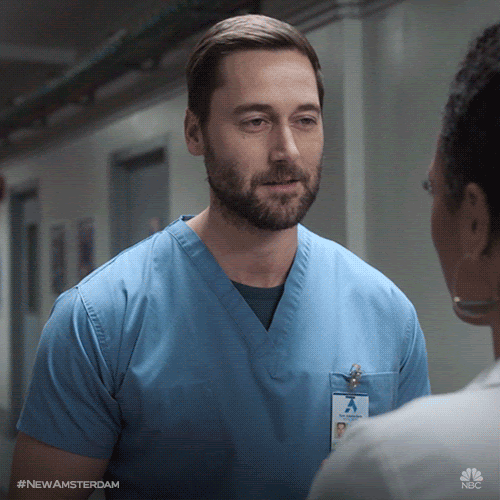-
See the Difference: Save $1,000 on LASIK , Find More
*Must mention this promotion and be treated in November of 2024 to qualify. $1,000 off for both eyes on standard Wavelight price, $500 off for one eye. Cannot be combined with any other offers.
Eye Complications 101: What is Diabetic Retinopathy?
If you have been diagnosed with diabetic retinopathy- or know someone who has- there are probably a lot of terms being thrown at you, which can be confusing (and even scary).
However, there is nothing to be afraid of- and the team at LasikPlus is here to help!
In this article, we’ll be covering some common questions, like: “what is diabetic retinopathy” “how can you prevent diabetic retinopathy?” and “what kind of diabetic retinopathy treatments are available?”

What is Diabetic Retinopathy?
If you have been diagnosed with diabetes – or know someone who has- this is a term you’ll most likely hear a lot.
So, let’s break it down for you: diabetic retinopathy is a vision complication of diabetes. In America, it’s one of the leading causes of blindness in adults. Diabetic retinopathy usually occurs in both eyes, and can affect anyone who has Type 1 or Type 2 diabetes.
While this eye complication is certainly a mouthful to pronounce, it’s not as complex as it sounds.
In the early stages of diabetic retinopathy, the blood vessels in your retina become weak. Because of this, fluid can ooze into the macula (the part of the retina that allows us to see colors and fine details) which causes swelling, and consequently blurred vision.
Then your body- in an attempt to improve blood circulation in the retina- tries to form new blood vessels on its surface. These abnormal blood vessels are incredibly fragile, and can leak blood into the back of the eye which impairs your vision.
Here’s the good news: once you are able to get your blood sugar levels under control, the lens will usually return to its original shape and your vision will improve. But if left untreated, diabetic retinopathy can lead to permanent blindness.
Because of this, it’s very important to know the symptoms of diabetic retinopathy, and how to treat it before it progresses too far.
What are the Symptoms of Diabetic Retinopathy?
In the early stages of diabetic retinopathy, you may experience little-to-no symptoms. However, as the condition progresses, symptoms of diabetic retinopathy can include the following:
- floaters or spots in your vision
- blurred vision
- impaired color vision
- dark or empty areas in your vision
- difficulty seeing at night

Diabetic Retinopathy; When to See a Doctor
Careful management of your diabetes is the best way to prevent vision loss. If you have diabetes, it’s a good idea to see your eye doctor for a yearly eye exam- even if your vision seems totally fine.
The best way for your eye doctor to check for diabetic retinopathy is by dilating your eyes with eye drops, which will open up your pupils, making it easier to see the insides of your eyes.
During your exam, your eye doctor will look for anything unusual, like scarring, swelling or blood vessel abnormalities.
If you experience any of the following, contact your eye doctor right away:
- Your vision is blurry for more than two days
- You lose vision in one or both eyes
- You see flashing lights (that aren’t really there)
- There is pressure or pain in your eyes
How to Prevent Diabetic Retinopathy
Unfortunately, diabetic retinopathy is mostly unpreventable.
However, early intervention for vision problems can help prevent severe vision loss. If you have diabetes, you can work to prevent diabetic retinopathy by practicing the following:
Talk to Your Doctor About a Glycosylated Hemoglobin (HbA1c) Test
The glycosylated hemoglobin test (or hemoglobin A1C test) helps identify your average blood sugar levels over the past 2-3 months. It’s helpful to get this test so you can see if your levels are staying within range, and if you need to adjust your diabetes medication.
The target for hemoglobin A1c levels in people with diabetes is under 7%. A healthy diet, exercise and staying on top of your medication will help keep your levels where they should be.
If You Use Tobacco, Ask Your Doctor to Help You Quit
Smoking tobacco more than triples your risk of diabetic retinopathy and other diabetic complications.
There are many great tools you can use to help quit smoking- for more information talk to your doctor or visit WebMD’s helpful guide here.
Manage Your Diabetes
If you have diabetes, try making a healthy diet and an active lifestyle a part of your daily routine.
Aim for at least 60 minutes of activity each day; walking, jogging, doing yoga or biking- something fun that gets you moving! Also be sure to take your oral diabetes medications or insulin as directed.

How to Treat Diabetic Retinopathy
There is currently no “cure” for diabetic retinopathy.
However, there are a few treatments available that can slow (or even prevent) vision loss. Treatments of diabetic retinopathy can include:
- Laser treatment: to seal the leaking blood vessels in your retina
- Steroids: Anti-inflammatory medicine to lessen vision loss by shrinking abnormal blood vessels
- Vitrectomy surgery: to remove the vitreous gel from your eyes. Doing this can let light flow through the retina, and improve your vision.
I Have Diabetes: Can I Get LASIK?
Patients with diabetes want to know: how can I see better without contacts or glasses?
Typically, a patient with diabetes goes to the eye doctor to diagnose or treat their diabetic retinopathy or vision loss- but this isn’t the only reason you should be seeing an eye doctor. The solution to vision loss doesn’t have to be “glasses” or “contacts- your best option is LASIK surgery.
But the burning question is: do patients with diabetes make good LASIK candidate, or is this condition a disqualifier?
The simple answer is: Yes. However, there is a “but.”
Evaluating blood sugar levels and diabetes history is the first step in determining whether you’re a good fit for LASIK. Your doctor will want to know how long you’ve had diabetes, and assess the stability of your diabetes medication. Any abnormalities in blood sugar levels can cause fluctuations in prescriptions, so it’s vital that your vision is stable and blood sugar is controlled before LASIK can be a consideration.
Your doctor may also want to talk to your primary care physician about your hemoglobin A1c levels. As mentioned above, these levels show your average blood sugar levels, and help dictate whether or not you need to adjust your diabetes medication.
If your vision is stable and your blood sugar is well-managed- your eye doctor will then assess ocular health. This includes an evaluation of your corneal health and- of course- a screening for diabetic retinopathy.
If you have diabetes and experience vision loss, LASIK surgery may be a great option for you. It’s just important that you are aware of the hurdles you might have to jump through to qualify for this treatment.

In Conclusion
Remember: diabetes doesn’t necessarily lead to vision loss!
Taking an active role in your diabetes management can go a very long way towards the prevention of diabetic retinopathy.
Learning to live with vision loss is difficult. Qualifying for LASIK treatment is not!
If you’re interested in LASIK surgery- but not sure whether your diabetes disqualifies you- set up a free consultation with a qualified eye surgeon today to get additional information, and begin the process of experiencing life with 20/20 vision!
YOU MIGHT ALSO LIKE...
VISION CENTERS NEAR ME
Enter your zip code, city, or a doctor name below to find a vision center.
Find out if LASIK is right for you
Congratulations!
Your vision issues can most likely be corrected with a LASIK procedure. Schedule a free consultation today.
Answer 5 simple questions to see if you are a candidate
What is your age group?
Do you wear...
With corrective lenses, do you have...
Have you ever been told that you have astigmatism?
Have you ever been told that you have dry eyes?
Request an Information Kit
Learn about your surgeon, the latest advanced technology, procedures, options and benefits, financing options, and what to expect from your LASIKPlus experience.









